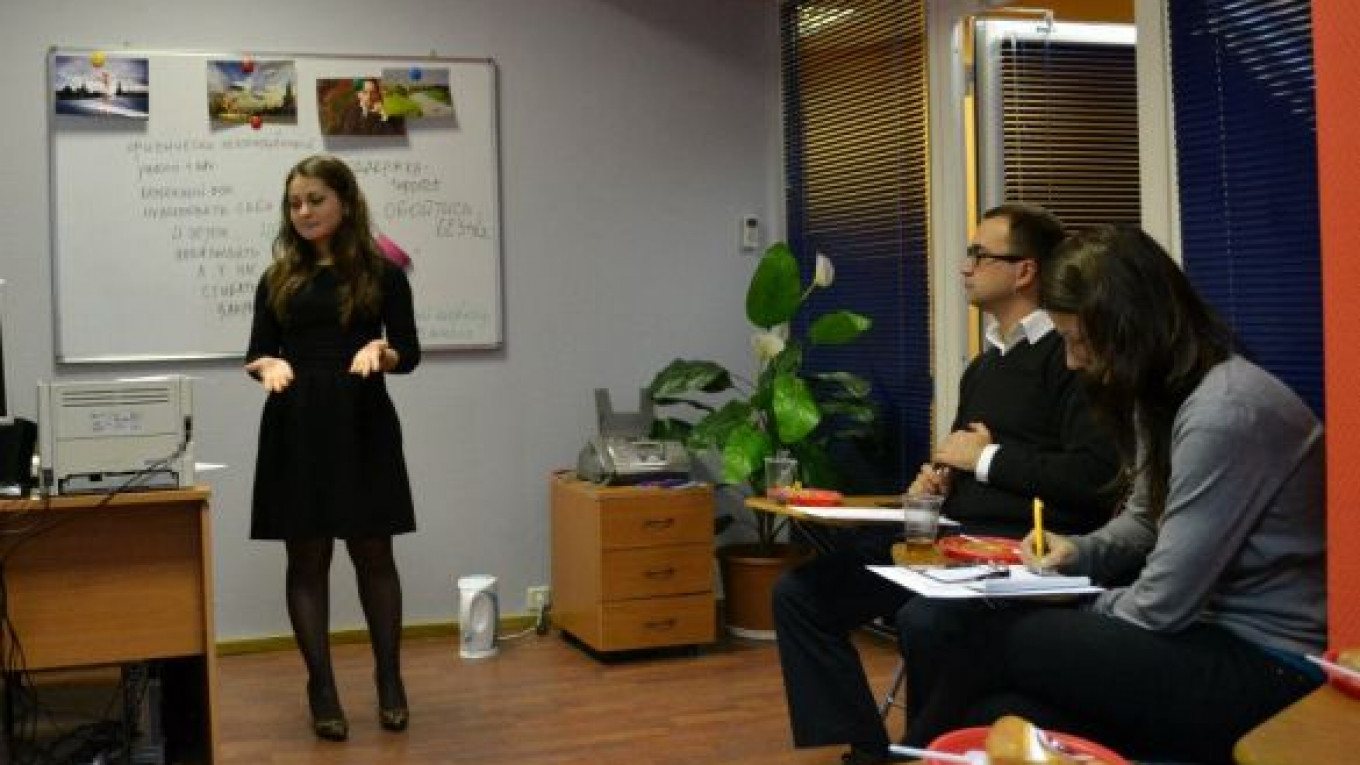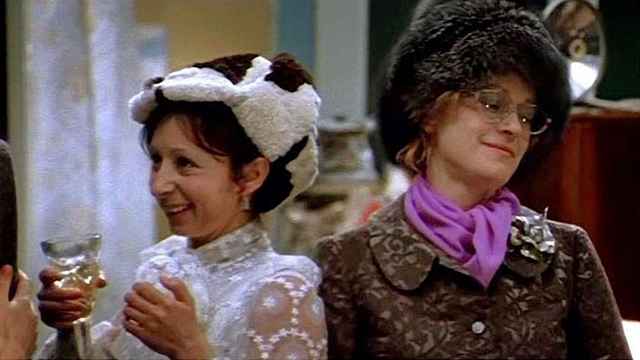Every year, people from all over the world come to Moscow to try to absorb the Russian language. Learning Russian through a university has remained as the most traditional option, but over the past fifteen to twenty years, many private language schools have thrown open their doors to foreign enthusiasts.
Like many aspects of life in the city, the supply of schools is vast, but cluttered and often confusing for those who do not know their way around.
The schools face challenges too, especially the difficult task of distinguishing themselves from others. Many try to make their organization excel by creating their own unique combinations of size, location, price, programs and/or target group. and are three of the main Moscow schools now capturing the attention of linguists, with Liden & Denz also maintaining its high yearly international intake.
Russian language school "Russianlab" decided to focus on teaching expatriates. Because this cross section of foreigners tends to be in Moscow for long periods of time, many require a method of teaching which is more focussed on enhancing students' daily use of Russian.
"Russianlab" chose a central location near Kropotkinskaya metro station in order to appeal to their focus group. "This location is very expensive," said Elena Nikiforova, founder of Russianlab. "I took a risk when we started up. But it worked out well."
The site is close to many embassies, making it convenient for them to send employees there. Russianlab opened in 2007 and has since developed a working relationship with prestigious programs such as "Alfa Fellowship Program" and "Skolkovo".
Nikiforova has a degree of technical knowledge, having been schooled as a linguist, with more than eight years teaching experience. Later, she decided to concentrate on management. Nikiforova explained why learning Russian can be challenging for native speakers of English.
"Russian and other Slavic languages are synthetical," Nikiforova said. "This means that when learning Russian, you first need to learn the broad basis of grammatical constructions and rules that take at least a few months to acquire before you can express yourself properly." The process speeds up once you master these rules.
However, English is an analytical language. "If you learn a few hundred words you can start a conversation and it seems to the listener that you talk correctly and he will think that you speak English," Nikiforova said, pointing out that it is still necessary to continuously learn new words in order to improve.
Another popular school is "Language Link". They opened in 1994 and operate in four Russian cities, with their Moscow office being the largest. Language Link tries to stay 'on top' by offering a great variety of learning programs, backed up by the ability to provide a long-term experience for their pupils.
"We are the only private school that can supply one year of academic schooling. Every year we have about 30-40 students from universities like Birmingham that send students to our school," said Maria Cherkasova, the manager of Language Link.
Beside the academic program, they also have a "Work and Study" program, during which you work teaching your native language for moneyin order to cut the costs of your own education.
The market does not seem to be saturated yet. The latest addition to Moscow's offer in language schools is Ruspeak. This Russian language school officially opened it is doors in September 2012 and, according to their director, Yelena Merabova, already teaches around 50 students. Merabova gained experience teaching Russian at the Pushkin Institute.
"We adapt the learning program to the needs of our students, unlike the universities, for example, which only teach according to their predesigned method," Merabova said.
In practice, this means that Ruspeak will change the speed, nature or topic of teaching, depending on the student's needs.
In general, most of the language schools have taken up Russian culture as part of their teachings. Despite Merabova's Georgian descent, Images of Russian heroes such as Yuri Gagarin and Alexander Pushkin adorn the walls of the classroom.
An interesting specialty of the school is its "discussion club." These weekly meetings are free and participants do not have to be enrolled at the school. The school welcomes all foreigners wanting to practice their Russian in a controlled environment with the guidance of a teacher. Topics of discussion tend to include Russian culture, stereotypes, society and Russian idioms, the knowledge of which can be a great help with day-to-day life in the country.
Liden & Denz is one more long term option for acquiring the Russian language. The company started in 1992 and has premises in both Moscow and St. Petersburg. It takes in roughly 1000 international students on a yearly basis, with many coming from big-name organizations, while also offering unpaid work experience placements to its younger clientele.
Every person has its own demands and preferences when learning a language. But when choosing a school in Moscow — again, as with everything else in the city – you have to be cautious.
"Be careful what you read on the website," Cherkasova said. "Especially when it comes to group classes, schools that say they do, may not actually have this option."
Nikiforova is even more pessimistic. "There are a lot of schools — but maybe five of them are actually serious," Nikiforova said.
Correction:
The fellowship program that RussianLab partners is called the "Alfa Fellowship," not the "Alpha Fellowship."
Contact the author at artsreporter@imedia.ru
Related articles:
A Message from The Moscow Times:
Dear readers,
We are facing unprecedented challenges. Russia's Prosecutor General's Office has designated The Moscow Times as an "undesirable" organization, criminalizing our work and putting our staff at risk of prosecution. This follows our earlier unjust labeling as a "foreign agent."
These actions are direct attempts to silence independent journalism in Russia. The authorities claim our work "discredits the decisions of the Russian leadership." We see things differently: we strive to provide accurate, unbiased reporting on Russia.
We, the journalists of The Moscow Times, refuse to be silenced. But to continue our work, we need your help.
Your support, no matter how small, makes a world of difference. If you can, please support us monthly starting from just $2. It's quick to set up, and every contribution makes a significant impact.
By supporting The Moscow Times, you're defending open, independent journalism in the face of repression. Thank you for standing with us.
Remind me later.






